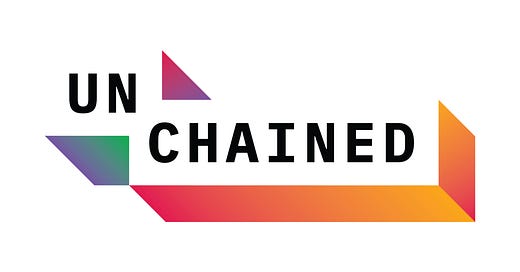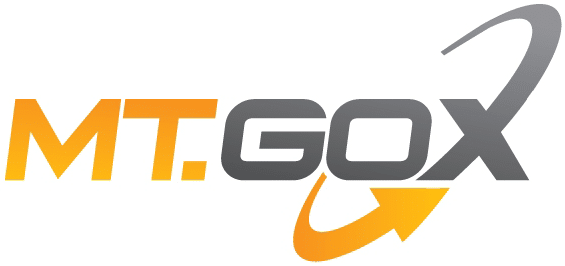Bitcoin = Money, ETH = Shitcoin?
Weekly News Recap: 🔄 FTX's reorganization plan, 🎯 Warren targets crypto lobby, 🚀 Solana's market surge, 📉 Genesis saga, 🗽 Silk Road crypto seizure, 📊 ETF shifts, and more!
You are reading the Unchained Weekly newsletter, where we cover all the major news in the crypto space, providing insights into the market's latest trends, regulatory shifts, and technological advancements. Stay informed. Your no-hype resource.
In this episode of Unchained, Arthur Hayes, Chief Investment Officer of Maelstrom, offers his views on Bitcoin as a reliable form of money and contrasts this with his perspective on Ethereum, which he labels a "shitcoin" despite being very bullish on it.
Arthur also explores the role and impact of memecoins within the crypto space. Looking to the future, he predicts a significant period for cryptocurrency investments, stating, "I think that this is sort of 2024 is going to set up to be the choppy period where it's time to accumulate before you get the blow-off top in 2025 to 2027."
He also delves into how Tether could go down….
Listen to the episode on Apple Podcasts, Spotify, Overcast, Podcast Addict, Pocket Casts, Pandora, Castbox, Google Podcasts, Amazon Music, or on your favorite podcast platform. Or watch it on YouTube.
Take Our Annual Survey 🙏
📢 Calling all Unchained fans! Take the Unchained annual survey and share your thoughts on how we can improve. 🚀
Participate for a chance to win exclusive Unchained merch! 🎁
Weekly News Recap
US Court Rules Against Terraform Labs in SEC's Securities Case
In a significant legal ruling, a U.S. court sided with the Securities and Exchange Commission against Terraform Labs and its CEO, Do Kwon.
The court found Terraform Labs guilty of offering and selling unregistered securities, specifically LUNA and MIR tokens, violating the Securities Act. However, the court granted summary judgment for the defendants on certain claims related to security-based swaps. The decision comes amid allegations of a multi-billion-dollar fraud by Terraform Labs, involving misrepresentations and untruths in their cryptocurrency offerings.
The case is set to go to trial on January 29, 2024.
Silbert Exits Grayscale Board Amid Regulatory Tensions
This week, Barry Silbert, CEO of Digital Currency Group (DCG), made headlines by stepping down from the board of Grayscale, DCG's high-profile crypto asset management firm and issuer of the Grayscale Bitcoin Trust (GBTC). This decision arrives amid a backdrop of intense scrutiny, with DCG facing unresolved allegations that some have compared to the infamous Enron scandal. Though the claims are yet to be proven in court, the submitted evidence has raised significant concerns.
Ram Ahluwalia, CEO of alternative investments advisor Lumida, commented on the issue, suggesting that Silbert's departure might be geared towards bolstering Grayscale's prospects for an Exchange-Traded Fund (ETF) approval by the U.S. Securities and Exchange Commission (SEC). Ahluwalia noted, "Barry's resignation was Sonnenshein's X-Mas gift," referring to Grayscale CEO Michael Sonnenshein. This shift in leadership is perceived as a potential move to grant Grayscale more independence, amid the ongoing investigations by the SEC into DCG under Silbert’s leadership.
Mt. Gox Commences Repayments With Double Reimbursement Reports
The long-standing Mt. Gox saga took a new turn as the defunct exchange reportedly began reimbursing its creditors. Notably, some payments were made through PayPal, marking a crucial step in resolving a case that has lingered since the platform's infamous collapse in 2014.
However, in an unexpected twist, reports emerged from creditors claiming they received double reimbursements from the Mt. Gox trustee. This surprising development adds a layer of complexity to the ongoing repayment process, which aims to address the financial losses incurred by thousands of users following the exchange's failure.
Solana Surges Amid Mobile Setbacks, Expands Stablecoin Reach
In what can be seen as a Christmas present for Solana believers, SOL surpassed the $100 mark for the first time since April 2022, reaching a high of $123 on Monday. This surge reflects growing investor confidence and marks a notable recovery for the platform, which had previously faced several challenges, including multiple network outages and the collapse of major supporter FTX. Even though SOL is still 60% down from its all-time high, the token is up over 900% over the past year.
Simultaneously, Solana Mobile encountered a hurdle, unable to fulfill all the orders for its crypto-integrated Android phone due to inventory management issues. The phone went through a buying mania due to the possibility of receiving airdrops of valuable memecoin $BONK.

In another development, Paxos announced plans to bring stablecoin issuance to the Solana network, diversifying beyond its Ethereum-based operations.
Ethereum Layer 2 Tokens Soar
This week, Optimism, a leading Ethereum scaling solution, saw its governance token OP reach an all-time high of $4.12, although it’s now trading at $3.80. This marks a significant year-over-year growth of over 330%. As a Layer 2 blockchain, Optimism plays a crucial role in enhancing Ethereum's efficiency, with $5.65 billion locked in its smart contracts. Other major L2 solutions on Ethereum such as Arbitrum and Polygon also saw their tokens surge in value, with ARB and MATIC rising 35% and 30%, respectively, over the last 7 days.

Simultaneously, Ethereum cofounder Vitalik Buterin proposed methods to simplify Ethereum's proof-of-stake mechanism. This includes maintaining 8,192 signatures per slot to reduce systemic complexity, ensuring easier participation in staking and bolstering network security. These proposals are part of Ethereum's ongoing efforts to enhance scalability and accessibility.
Airdrop Hunters and Staking Protocols Fuel Market Buzz
Over the past few weeks, we’ve seen an aggressive pursuit of new opportunities by airdrop hunters, as well as the impressive performance of liquid staking protocols. In a striking display of enthusiasm, airdrop hunters have already invested over $400 million into Manta Network's Ethereum layer 2 blockchain, Manta Pacific, eagerly anticipating the distribution of a new token.

In parallel, the recently announced Blast network has already amassed an astonishing $1.1 billion in deposits, a significant achievement considering it's more than a month away from going live.
Additionally, December saw Swell's liquid staking protocol attract over $125 million in inflows.
Simultaneously, this week EigenLayer, a restaking protocol on Ethereum, crossed the $1 billion mark in total value locked.
Scams, Hacks, and Rug Pulls Got Away With $2 Billion in 2023
A report by security app De.Fi claimed that crypto users lost nearly $2 billion to scams, hacks, and rug pulls in 2023, a figure roughly half of the previous year's losses. Ethereum experienced the brunt of the losses with about $1.35 billion lost in 170 incidents, while BNB Chain and other networks also suffered significant exploits. Researchers at De.Fi attributed the reduction in losses this year to improved security protocols and increased market awareness.
In one recent incident, Levana, a perpetual swap protocol on the Osmosis blockchain, fell victim to an exploit, resulting in a loss of over $1.1 million from its liquidity pools. The exploit took advantage of a congestion attack on the Osmosis chain and vulnerabilities in Levana's systems.
Also this week, Telcoin, a financial application developer on the Polygon blockchain, suffered an exploit leading to a 40% drop in its token price. This incident caused a drain of over $1.2 million from affected accounts. Telcoin identified the root cause as an issue with the proxy implementation of its wallet on Polygon, affecting primarily wallets that had never initiated transactions.
Hong Kong Advances Crypto Regulation with Stablecoin Licensing Proposals
This week, Hong Kong's financial regulators, including the Hong Kong Monetary Authority (HKMA) and the Financial Services and Treasury Bureau (FSTB), proposed a mandatory licensing regime for fiat-backed stablecoin issuers. The move aims to supervise stablecoin operations and guide prospective issuers in compliance.
The proposal aligns with Hong Kong's ambition to become a regional crypto hub, having already recognized retail crypto trading as a regulated activity since June. Last week, Hong Kong also outlined the requirements for spot Bitcoin ETFs.
Eddie Yue, head of the HKMA, commented on the potential of stablecoins to serve as an interface between traditional finance and crypto, suggesting further integration and emphasizing the importance of stability in digital payments.
India Targets Offshore Crypto Exchanges with Compliance Notices
India's Financial Intelligence Unit (FIU) issued compliance notices to nine prominent offshore crypto exchanges under the Prevention of Money Laundering Act (PMLA). The targeted exchanges, including Binance, KuCoin, Huobi, Kraken, and others, are accused of operating illegally in India without adhering to PMLA provisions. The Indian government is also initiating steps to block the URLs of these entities.

The action follows India's March mandate requiring crypto businesses to register with the FIU and comply with anti-money laundering and counter-terrorism financing regulations. Despite the mandate, several offshore exchanges catering to Indian users reportedly have not registered, prompting this latest decisive action by the FIU.
Donald Trump-Linked Wallet Sells $2.4 Million in ETH
A portfolio believed to be linked to former President Donald Trump reportedly sold off approximately 1,075 ETH, valued at around $2.4 million.
According to Arkham Intelligence, this sell-off followed a period of the portfolio accumulating Ethereum through Trump NFT royalties, with the peak balance reaching $4 million. Arkham, which has been monitoring this specific blockchain data for months, initially identified these assets back in August, based on financial disclosures filed by Trump.
SEC Admits to Missteps in Crypto Fraud Case Against Debt Box
The SEC admitted to serious errors in its case against crypto firm Debt Box. The SEC expressed “deep regret” that inferences were represented as facts when it sought emergency measures such as asset freezes, but argued that it didn't act in bad faith. Despite these admissions, the SEC has urged the court not to impose sanctions against it. The case involves Debt Box allegedly defrauding investors of $49 million by misrepresenting investments. The SEC's response includes mandatory training for its staff on accuracy.








